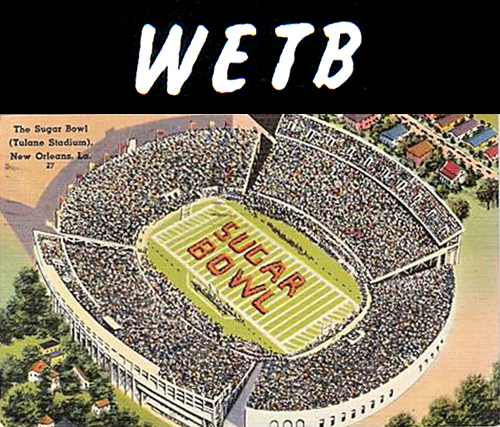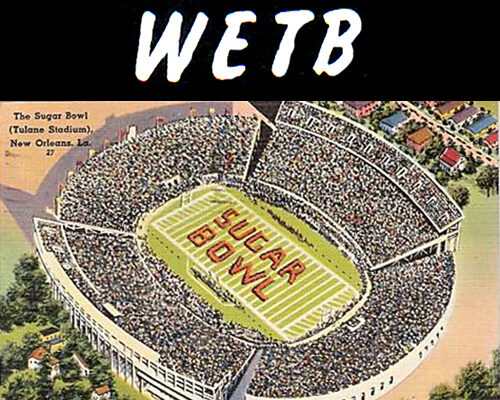The recent college football bowl games may bring to mind an incident that occurred on Thursday afternoon, Jan. 1, 1948 while area football devotees were huddled around their radios.
Those were the days when the medium of television had not yet arrived in most households; therefore, sports enthusiasts had to rely on radio to receive play-by-play game action. Since the University of Tennessee did not receive a bowl invitation that year, WETB AM 790 was broadcasting a bowl game believed to be the Sugar Bowl, matching the sixth-ranked Crimson Tide of Alabama with the fifth-ranked Texas Longhorns.

The game site that year was Tulane Stadium in New Orleans. The (Texas-Alabama) scoring by quarter was 7-0, 0-7, 7-0 and 13-0. The Longhorns prevailed by 27-7. During the final two minutes of the contest, diehard fans still clinging to their radios were flabbergasted to hear the words:
“And as we conclude our broadcasting schedule for today, WETB, Johnson City, Tennessee, operates on 790 kilocycles with a daytime power of 1000 watts by authorization of the Federal Communication Commission. WETB is owned and operated by East Tennessee Broadcasting Company, affiliated with Johnson City Press-Chronicle. Transmitter and temporary studios are located on the Erwin Highway. We invite you to join us again tomorrow morning at 7:15 when we return to the air. Thank you for listening and a very pleasant good evening to you all.”
To the chagrin of area sports fans, the station summarily went off the air without broadcasting the final two minutes of play. This occurred because the station was strictly mandated by the Federal Communication Commission (FCC) to be off the air at 5:15 p.m. The fact that the game was still being played was not an issue with the FCC. The rules had to be followed or the station could lose its license.
Carl Jones, Jr., owner of the Johnson City Press-Chronicle and WETB took action prior to the 1948 regular football season to prevent a recurrence of a game being cut off. He composed a carefully worded letter to FCC’s T.J. Slowie with a proposal. Jones noted that the radio station had contracted to carry all of the University of Tennessee’s 1948 football games.
“Your attention,” he said, “is respectfully called to the fact that we are broadcasting these games in response to great demand by the people in this area. “As football games normally are concluded within two hours, presently scheduled starting times of eight games at 2:30 p.m. and two games at 3:00 p.m. should enable us to compete each broadcast prior to signing off the air at 5:15 p.m. during the month of November. We request authorization from the (FCC) for an extended period not to exceed 15 minutes after regularly licensed sign-off in order to compensate for unexpected delays during games. While it may not be necessary to use the extended period whatsoever, authorization for such an extension in case of necessity will enable WETB to perform its obligations to the radio audience in this area. We are attempting to avoid a reoccurrence of the last New Year’s Day game when we were prevented from carrying the final two minutes of the event because of sign-off. Very truly yours, East Tennessee Broadcasting Company, Carl A. Jones, Jr., President.”
I conferred with Bud Kelsey, former program director of the station. Although he did not recall the specific event, he was highly skeptical that the FCC granted an extension. Although quite amusing today, missing the final moments of a major sporting event was anything but humorous 62 years ago.

Comments are closed.